Search Engine Optimisation: This is just a tiny three-word term, but we all know how ”fruitful or devastating” it can be for businesses if not optimised accurately.
Note: Claims like “Rank #1 in a week, days, or hours” are just not valid.
We desire to rank well on Google (probably in the 1st position) for all of our targeted keywords and fetch the maximum traffic benefits. But HOW IS THIS POSSIBLE?
Unfortunately, there is no straightforward answer to this question because we are now moving to the age of Artificial Intelligence (AI). And as we all know, Google uses a machine-learning AI system called “RankBrain” to help sort-out its search results.
Keeping RankBrain aside, usage of AI is improving significantly in all of their other Algorithm updates too. And this is why we (Digital Marketers) need to revamp our work strategy for extraordinary results and keep pace with Google’s ever-changing updates.
In this Definitive Guide for SEO, we will show you our successful SEO strategies and how and when to implement them. Working around these strategies, we have achieved the #1 position on some of the most competitive keywords in the UK market like skip hire, grab hire, skip hire Croydon, sash windows London, handyman Battersea, and many more.
Module 1: Project Study and Competitor Analysis (3 – 5 Days)
Many SEO experts don’t believe in this strategy but trust us; this is an integral part of your SEO project. For example, before diving deep into the sea, you must know how hard it is underneath and what are the creatures you are most likely to encounter on your way around.
Project Study: Organic Search Summary
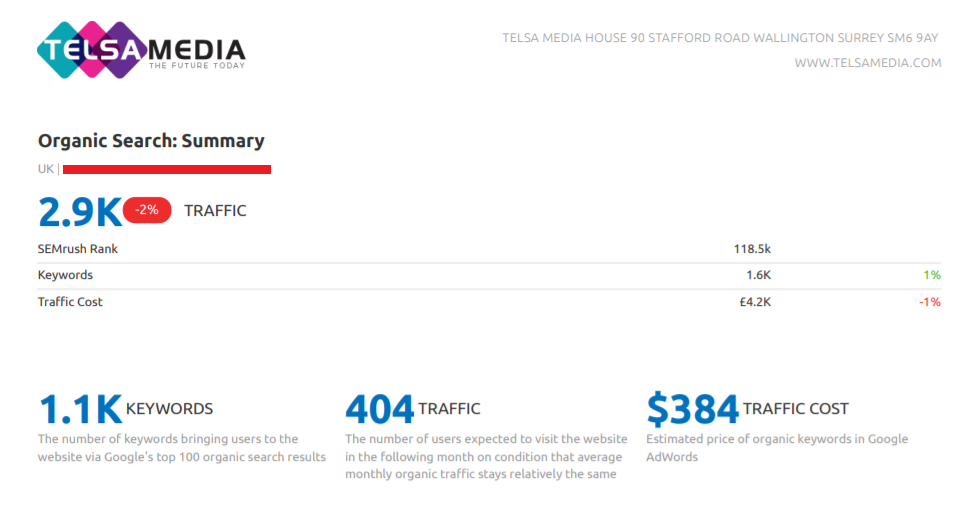
Project Study: Backlinks Summary
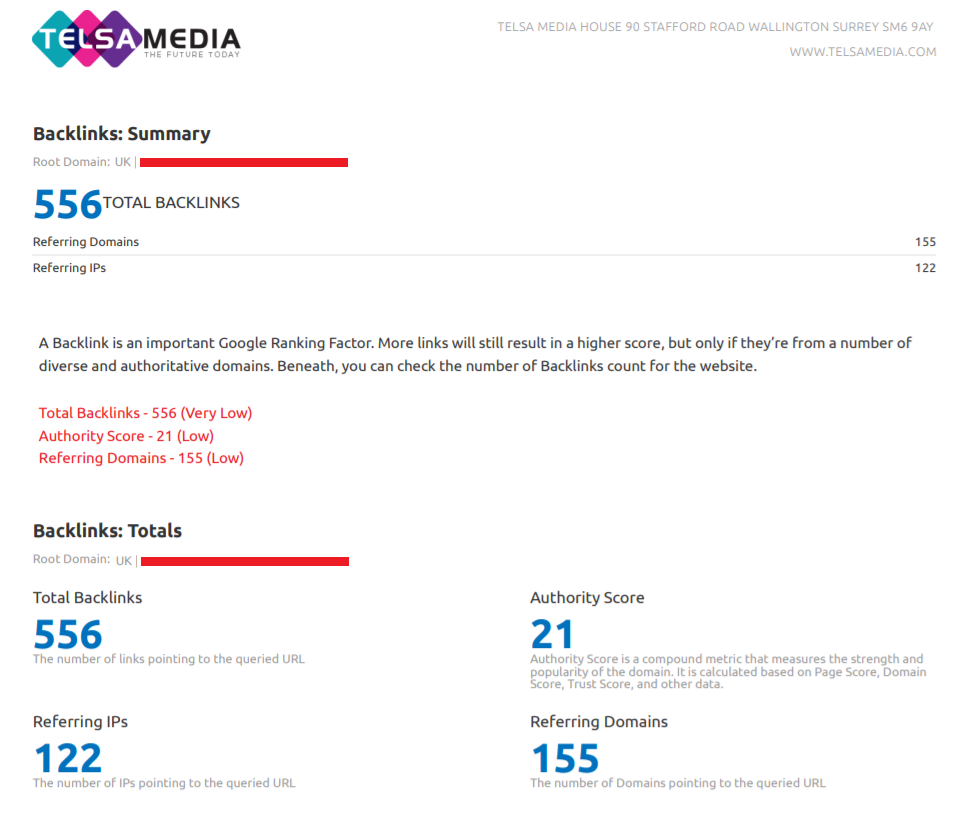
Project Study: Organic Search Position Summary
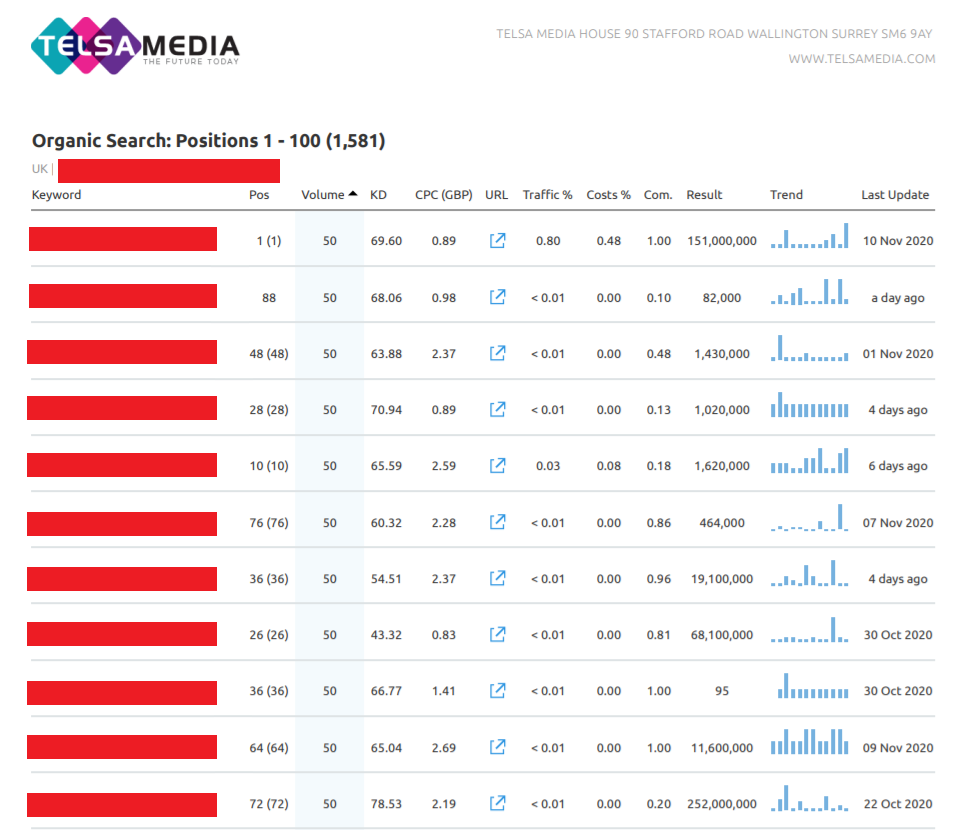
Essential Things to do in a Project Study:
- Business Analysis
- Understanding your Targeted Services and Audience
- Competition Breakdown (List out your Top 10 main competitors)
Essential Things to do in Competitor Analysis:
- Website Structure and Navigation Analysis
- Landing Page Optimisation
- Targeted Keywords Study (Exact, Medium Long Tail & Long Tail Keywords)
- Top 10
- Top 20
- Top 30
- Backlink Audit
- Content Analysis (Writing Style, Keywords Targeting, and Words Count)
- Leads/Sales Funnel and Hook Points used
Module 2: Keywords Study (5 – 7 Days)
Keywords Study is the “most important” factor in Search Engine Optimisation and is a skill that all the SEO Executives must-have. If done accurately, there are endless benefits and rewards for your efforts.
The importance of Keywords study in SEO is like laying a foundation for a 50 story building in Construction. The overall strength and endurance of your building depend on how strong your foundation is.
You need to find and discover all the possible search terms relevant to your Business and note them down as a cluster in Google Spreadsheet. It will help you define a strong structure for your website.
Keywords Study Example: Search Engine Optimisation
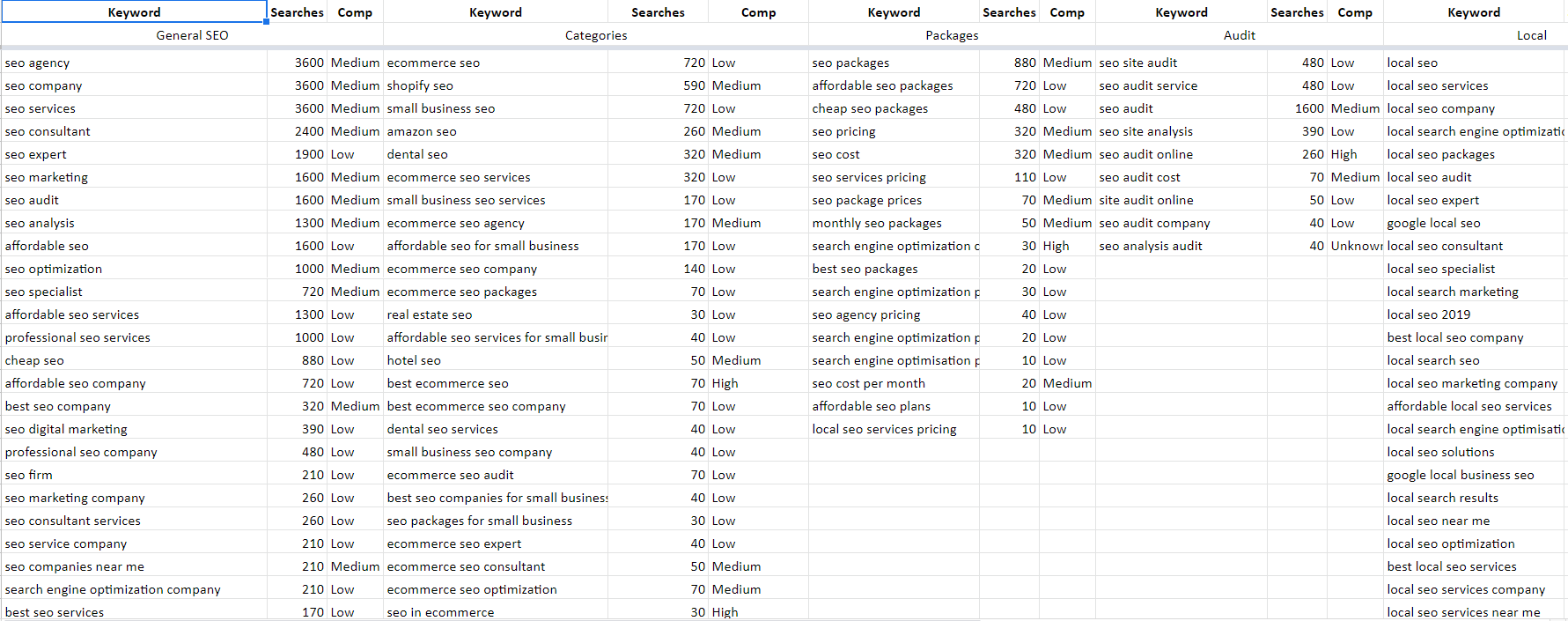
Keywords Study Example: Pay Per Click
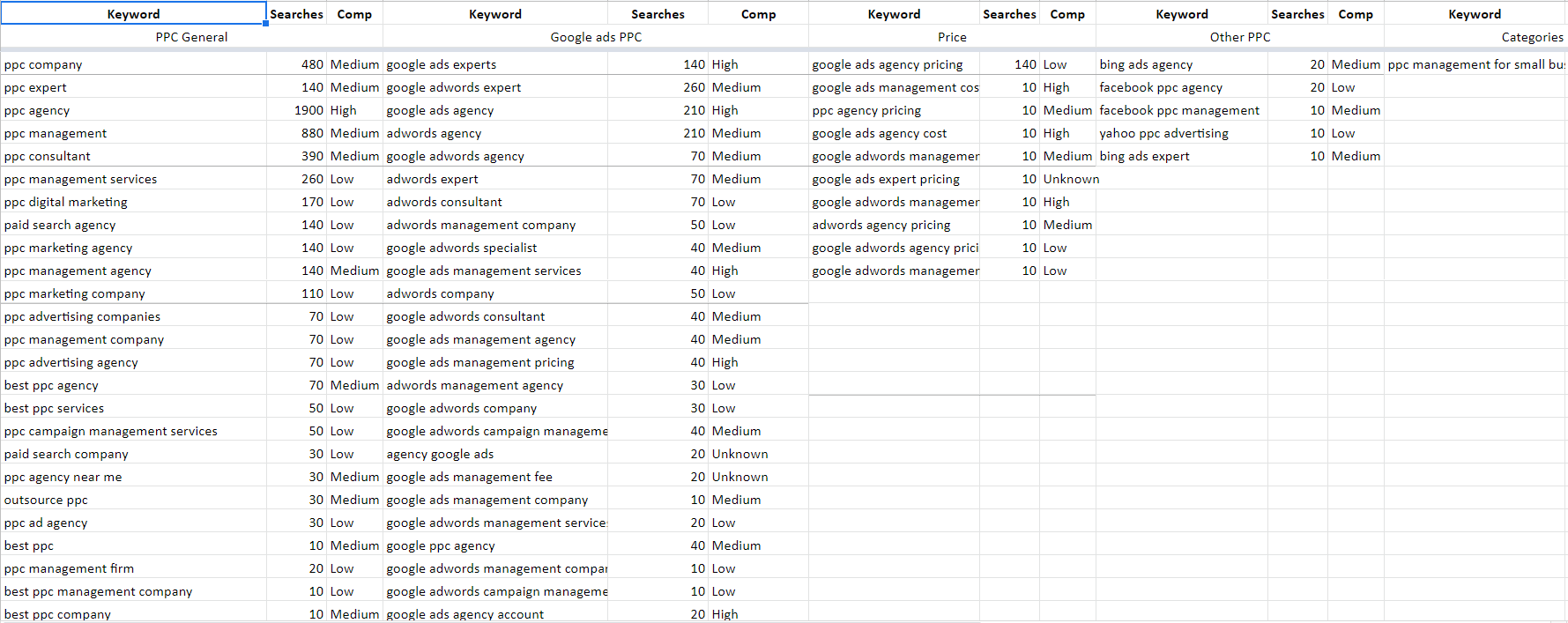
Types of Keywords
- Service-based Keywords
- Market Segment Keywords
- Customer Defining Keywords
- Brand Keywords
- Product Keywords
- Competitor Keywords
- GEO Targeted Keywords
Types of Keywords by Length
- Short Tail Keywords
- Mid Tail Keywords
- Long Tail Keywords
Types of Keywords by Action
- Informational Keywords
- Navigational Keywords
- Transactional Keywords
There are many tools available in the market, but we would suggest using these three free tools for the best keyword ideas and less complexity.
- Google Keyword Planner
- Ubersuggest By Neil Patel
- Keywordtool.io (For Long Tail Keywords)
Module 3: Website Structure ( 1 – 2 Days)
Once you have completed your Keywords Study work, the next step will be defining your website structure, architecture, hierarchy, and navigation. Based on the results, you can identify the set of keywords that requires a separate landing page and other relevant sub-pages.
Google rewards relevancy between the search query and a landing page with higher rankings.
For example, you won’t quickly climb up the rankings if your Target Keyword is Website Design London and your Landing Page is Website Development. But if you have a separate Landing Page for Website Design London keyword, your chances to rank higher increases significantly.
Site Structure Example of a Digital Marketing Website (Telsa Media)
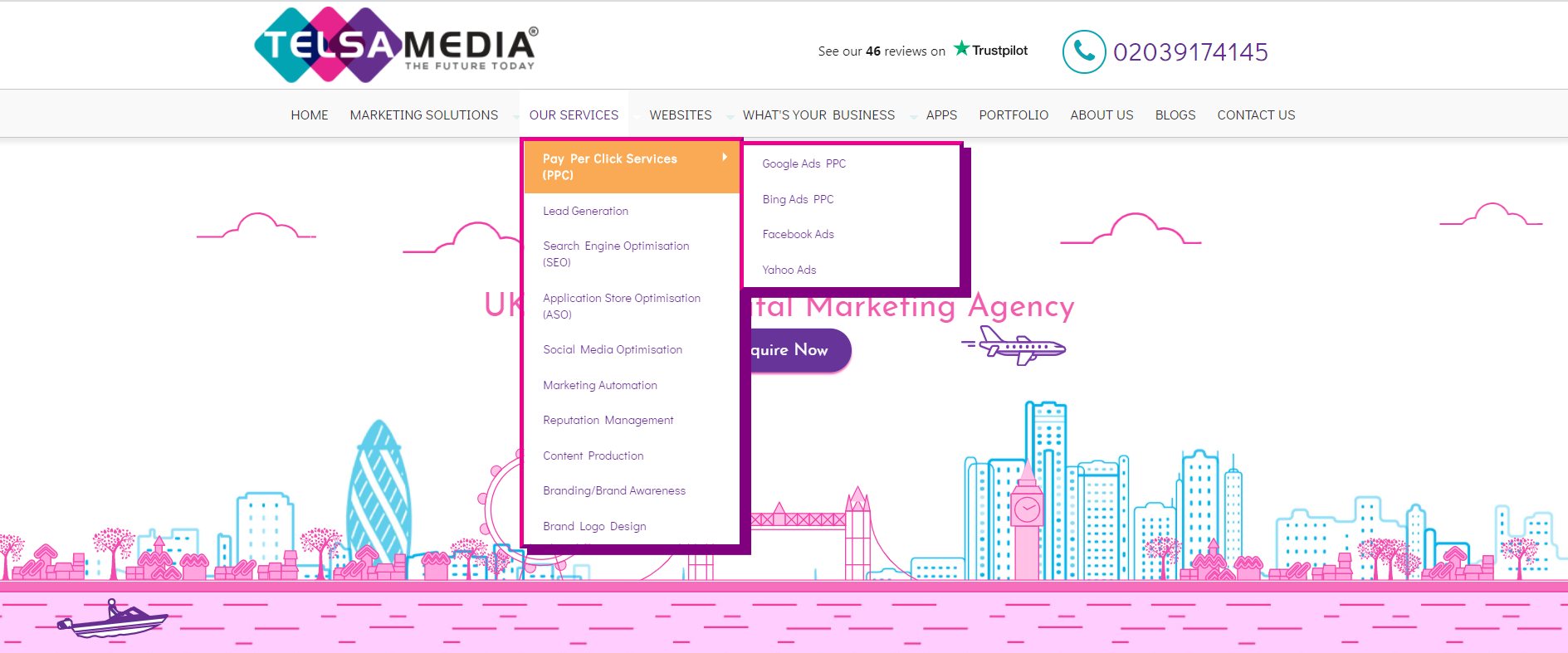
- Home
- Marketing Solutions
- Social Media Marketing
- Youtube
- Digital Marketing
- Online Marketing
- Internet Marketing
- Website Marketing
- Email Marketing
- Video Marketing
- Mobile Marketing
- Content Marketing
- Social Media Marketing
- Our Services
- Pay Per Click
- Google Ads
- Bing Ads
- Facebook And Insta Ads
- Lead Generation
- Search Engine Optimisation
- App Store Optimisation
- Pay Per Click
- Websites
- Website Design
- Ecommerce
- WordPress
- Magento
- HTML
- Shopify
- Custom
- Website Development
- Business Website Design
- Website Design Local Areas
- Bespoke Website Design
- 3 Page Website
- 5 Page Website
- 10 Page Website
- Website Design Package
- Website Design
- About Us
- Blog
- Contact us
Module 4: Set-up Tracking Tools & Conversion (1 – 2 Days)
Tracking tools help you measure your website performance across various factors like rankings and conversions to SEO Success and User Behavior.
Google Analytics – Audience Overview
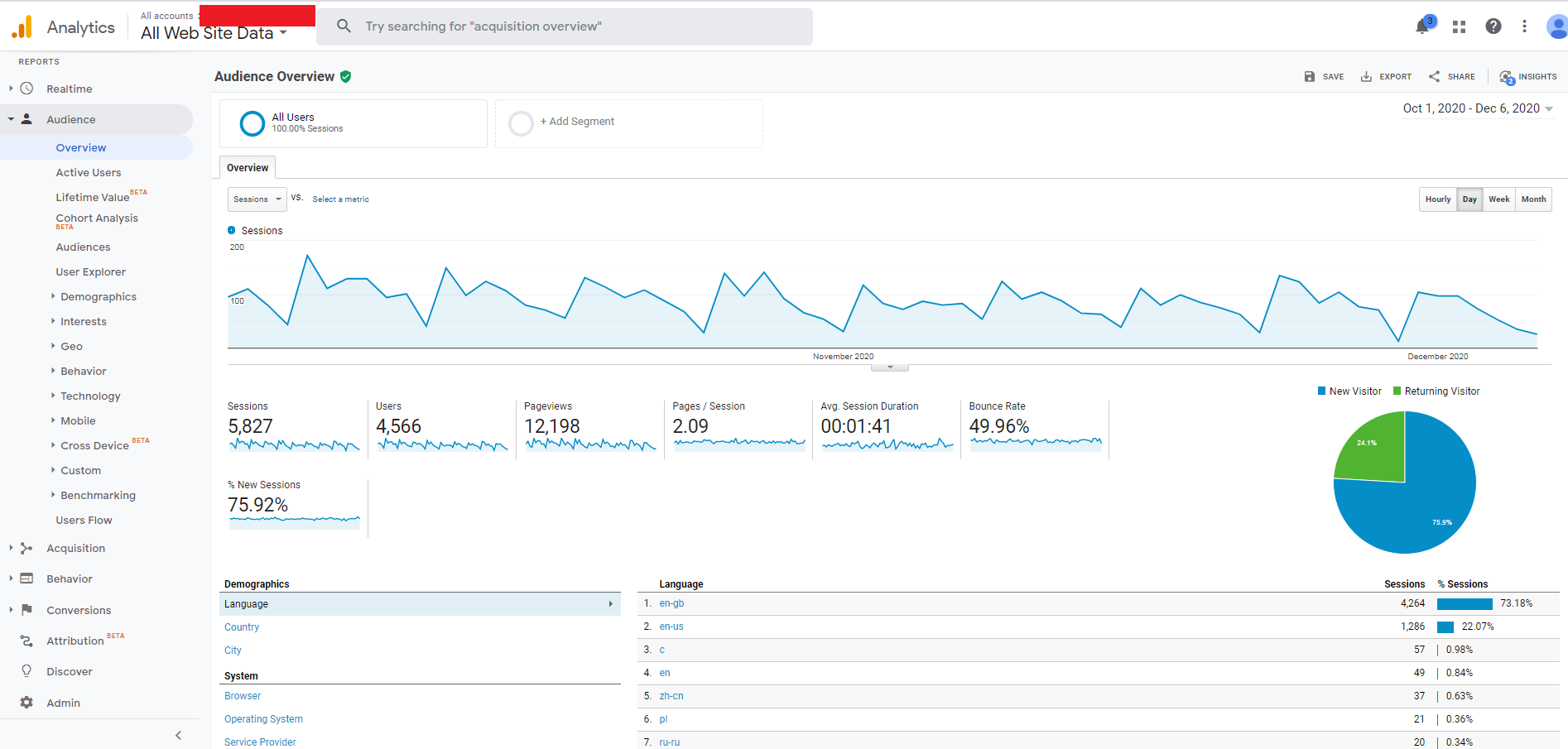
Google Analytics – Conversions
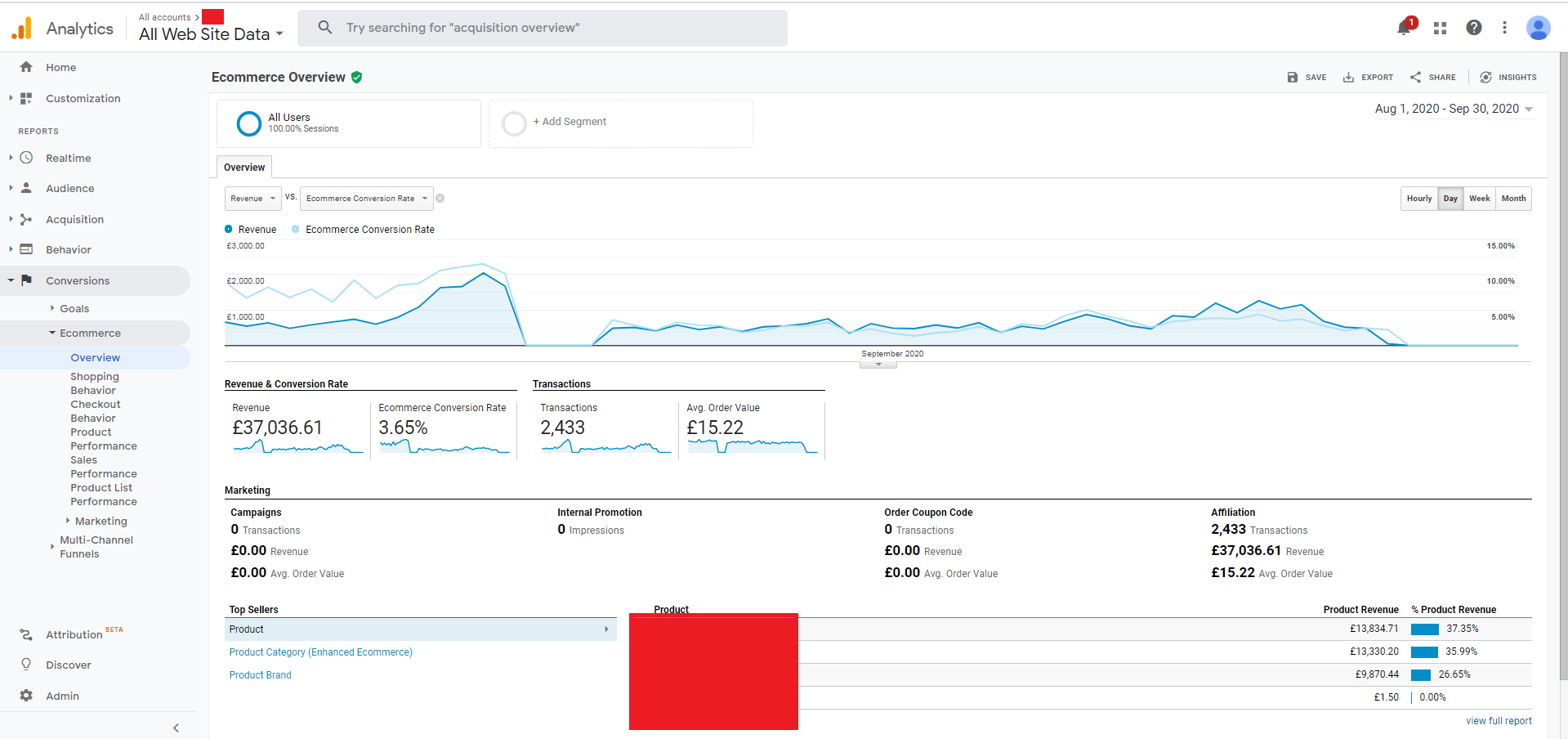
Google Search Console – Overview
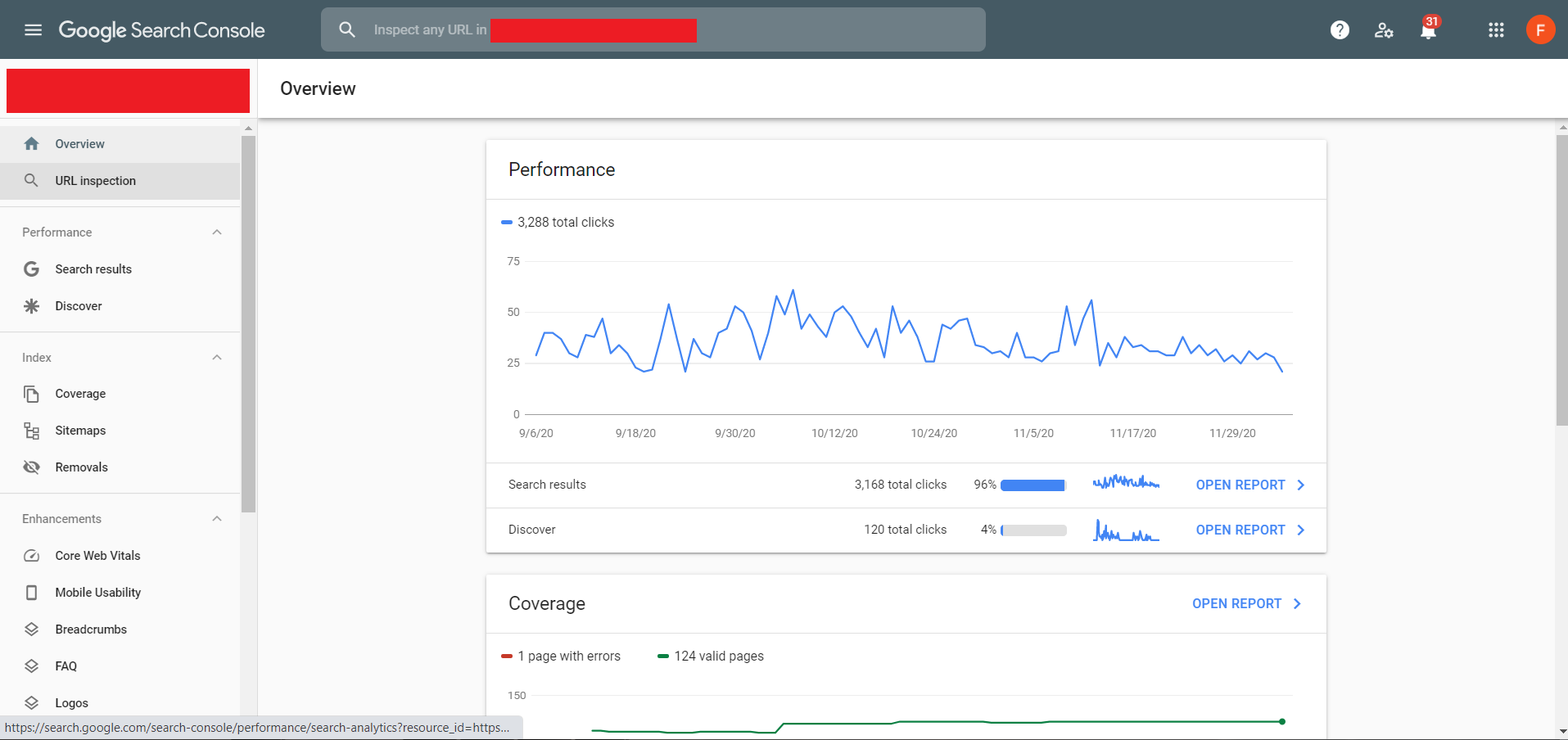
Whether or not your users are taking the actions that you want them to take depends on how well you are tracking their journey and funnel. You can’t improve it until and unless you track it – It’s straightforward!
With the help of free tracking tools like Google Analytics, Google Search Console, and Google Tag Manager, you can easily understand how well your website is performing and where you need to improve for better results.
Up to this point, you have completed Project Study and Competitor Analysis, Keywords Study, Website Structure, and Tracking Tools Setup. Now it’s time for some “Technical SEO Work” and what better to start than ON-PAGE SEO!
Module 5: On-Page SEO Work (3 – 4 Weeks)
We are in the 2021 era, but still, the significance of “On-Page or On-Website SEO” has not been diminished nor compromised by Google. In fact, many Digital Marketing experts and gurus believe that if the Website’s On-Page work is precise and to the point, Backlinks are not required to succeed.
So, how exactly you do that precise on-site work? Well, that certainly depends on many important factors like:
- Meta Title
- Use your Keyword Up-Front In the Title Tag
- Use Modifiers like “best,” “cheap,” “local,” “cost-effective,” and “fast” to make it attractive
- Meta Description
- Use Unique, Attractive and Keyword Optimised Meta Descriptions to boost Organic CTR%
- Use your primary and secondary keywords once
- Header Tags Optimisation
- Title In H1, Sub Headings in H2 and likewise use H3, H4 and more
- Click-Through Rate (CTR) Optimisation
- Search Engine Friendly URL’s
- Keywords-Enrich and SEO Friendly Content
- Internal and External Linking
- Optimise UX Signals
-
- Dwell Time, Bounce Rate, and Website Speed
- Image SEO Optimisation
Remember that Google still crawls your website for keywords!
Module 6: Content
FunFact: The web contains over 6 billion indexed web pages as of 2020.
Content was, is, and will always remain the KING no matter what kind of updates Google rounds off in any of their Algorithms. A strong, well crafted, unique, and original content written to appease the users and not the search engines will always reap you unlimited rewards.
Gone are the days when you’d write down tons and tons of keyword-stuffed or plagiarised content across the website for rankings. Google is always evolving, and their AI is way smarter than anyone can imagine.
Over time they have made several structural reforms in their Algorithms regarding the content quality assessment and ranking criteria. Some of the most important factors are listed below.
- 100% Unique and Original Content
- Keywords Targeted which defines Context
- Use Target Keyword in the First 100 Words if possible
- Must Satisfy Search Intent
- Usage of Variations like LSI, Long Tail, Exact Match, and more for Keywords
- Usage of Header Tags (H1, H2, H3….. H6)
- Keyword Phrases are highlighted with B/I/U as appropriate
- Internal Links wherever applicable
- Use Good Images and Multimedia
- Write content in a natural conversation tone that should be easily understandable and help the readers
- Should contain Fun Facts, Stats, and other kinds of stuff
- Social Markup Tags are employed
- Page includes schema.org microdata markup
Just remember one thing – Everything in and around has changed except the core, and that is Content.
Module 7: Backlink
Backlink = A link from one website to another.
You get links in volume from any niche website, and your keywords ranking graph will go BOOM. Right? Yes, it worked to a great extent back in in 2005 but unfortunately not now.
FYI, Penguin (launched in 2012 to overcome manipulative link building practices) is functioning in the most advanced form right now and can easily recognise any misleading tricks you opt to obtain a backlink.
Backlinks Data
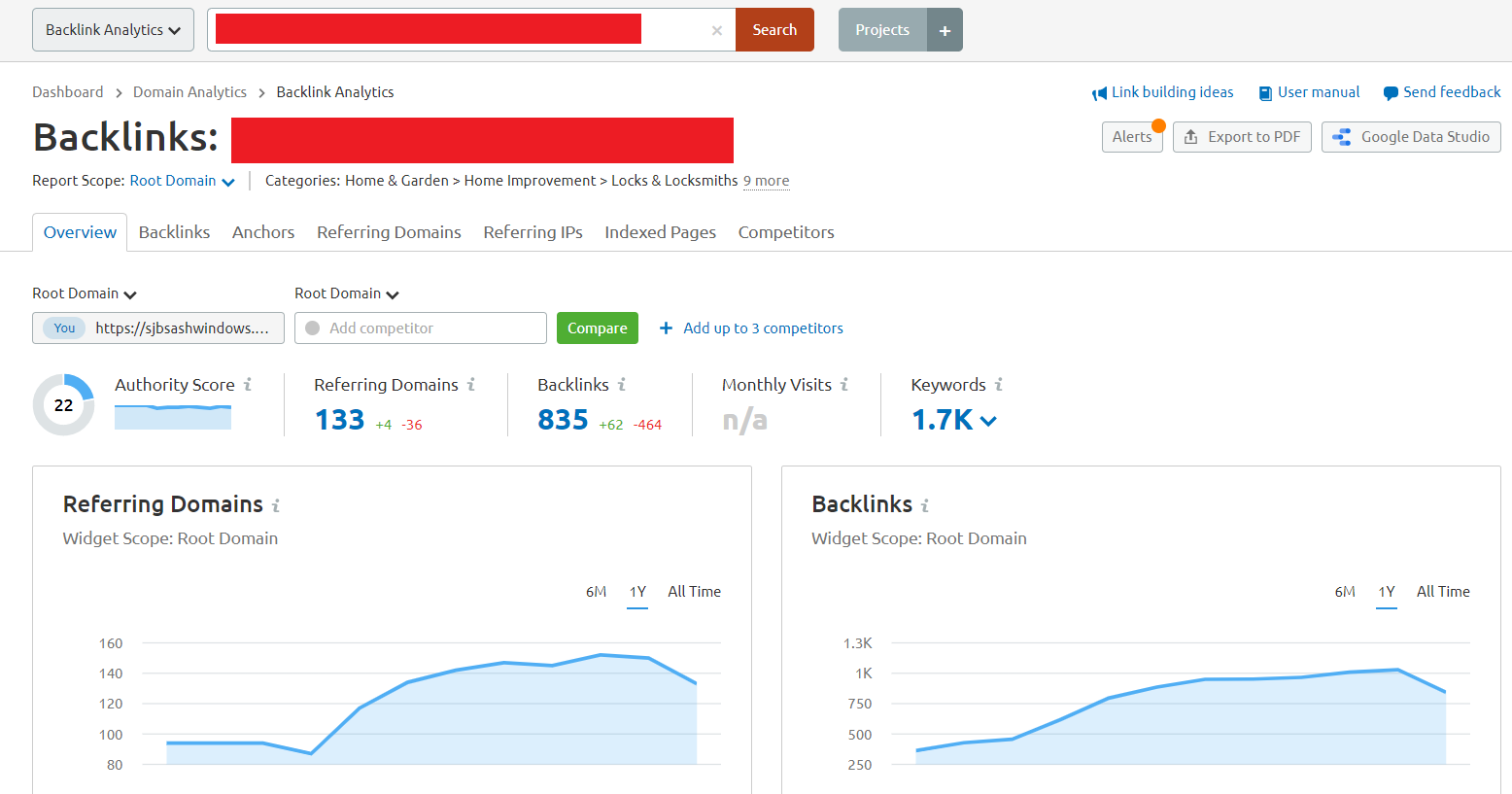
According To The Google Quality Guidelines – Any links intended to manipulate PageRank or a site’s ranking in Google search results may be considered part of a link scheme and a violation of Google’s Webmaster Guidelines. This includes any behaviour that manipulates links to your site or outgoing links from your site
It would be best if you avoided all of these manipulative tactics, or else you will face the “penalty wrath” of Google sooner rather than later.
Some of the best ways to obtain natural and organic backlinks in 2020 are:
- Content Marketing
- Guest Blogging
- Email Outreach
- Article Submissions on Relevant Niche
- Blogging
- Turn your Mention Into Backlinks
A Backlink is still crucial to your overall SEO success, but only if it’s obtained naturally from relevant niche websites and not just by submitting a link on any forums or directories or by doing link farming.
Module 8: Blogging
Blogging is the most convenient way in 2020 to obtain “Natural Backlinks and Traffic” to the website. It also helps boost the overall SEO success organically.
How is Blogging Beneficial?
Let’s say you have around 50 Blogs, and 30 of them are already moving up the rankings very fast.
Over time, these 30 Blogs will start gaining Organic Backlinks from many other websites, and this will increase your overall Page Authority (PA) and Domain Authority (DA).
You can then easily transfer the link juice from the Blog Page to your main Service Page via Internal Linking, and this will help you gain excellent rankings for your targeted keywords in the service page.
A well-organised and updated Blog section on the website will help you achieve significant improvements in your overall SEO progress.
Conclusion
Hopefully, this guide will help you devise a correct SEO strategy for the critical year of 2021. All of these modules have been tried and tested by us, and they succeeded way beyond our expectations.
Let us know in the comments if you have any questions, and we will try and resolve all of your doubts.


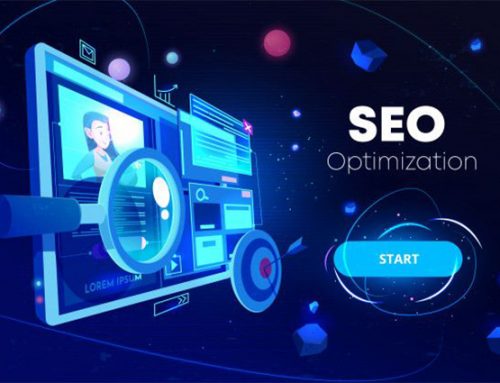
This is my first time pay a quick visit at here and i am really happy to read everthing at one place